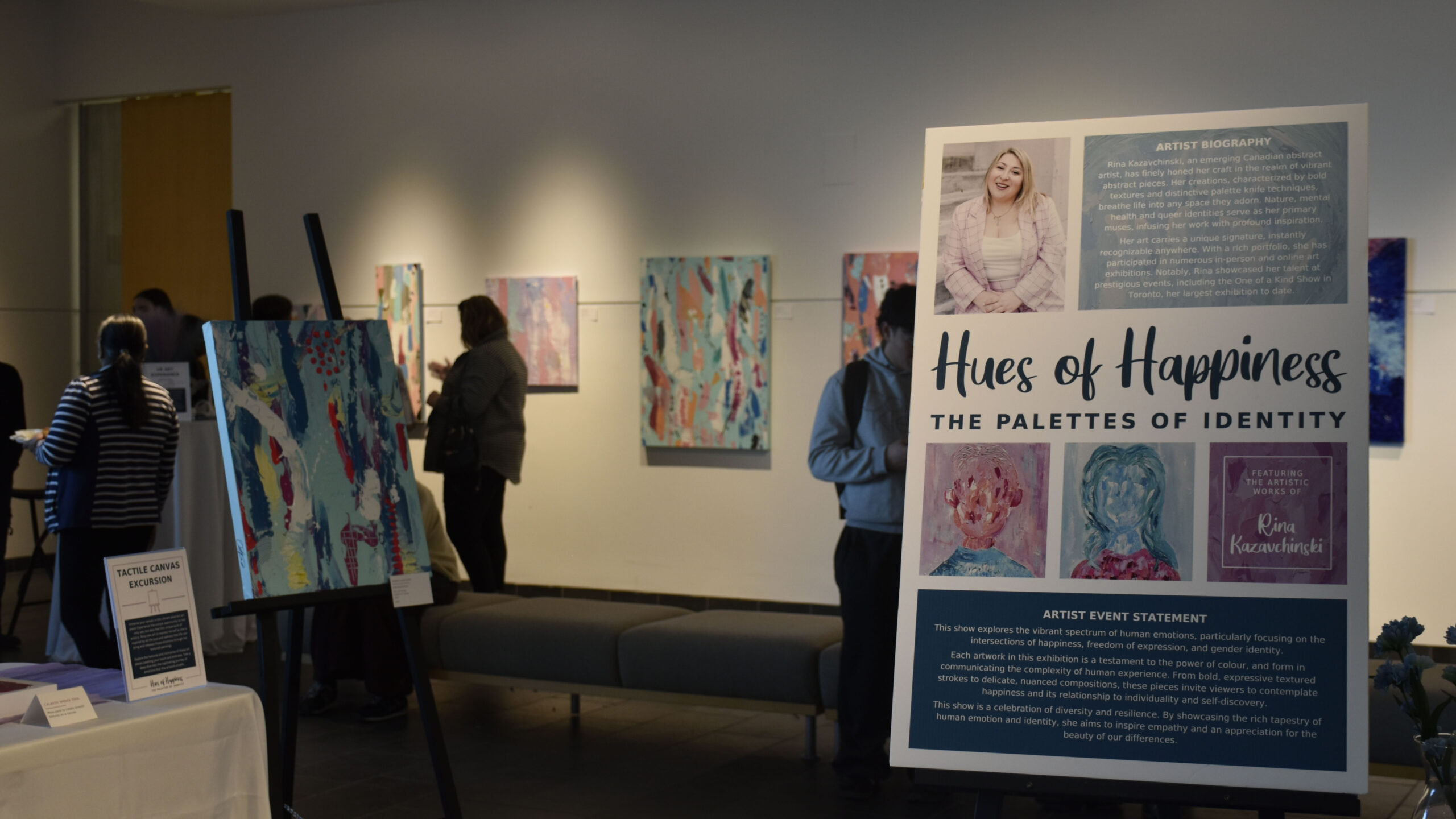Rina Kazavchinski, an emerging Canadian abstract artist, continued to pursue her dream as an artist with the opening of her first solo art show at the University of Guelph-Humber on March 21.
“I grew up in an artistic family,” she said. “My family were artists.
“They made a good living growing up, but it became harder with mass production and international reproduction and it just lost its value a lot for my parents,” said Kazavchinski at her Hues of Happiness show at the Guelph-Humber Art Gallery.
She said her parents were having a tougher time making a living out of art and she did not want this for herself. Instead, she got a marketing degree in school and worked for the last 12 years in corporate marketing, loving many aspects of it but not being fulfilled artistically.
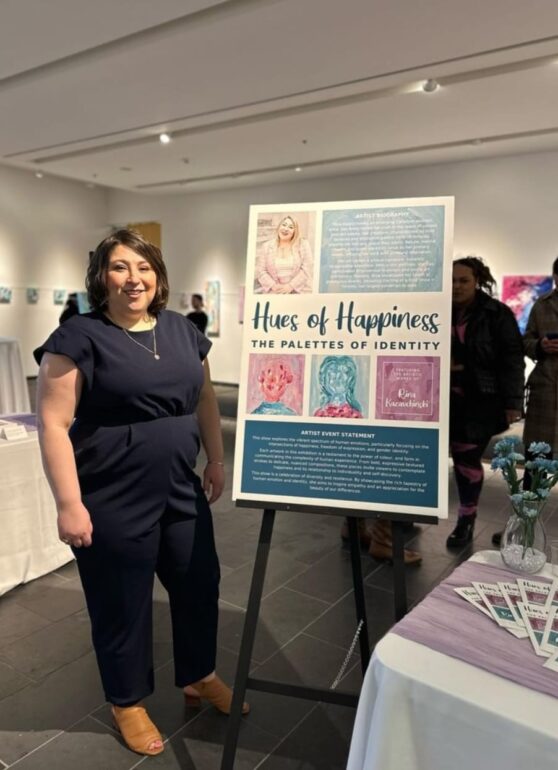
Rina Kazavchinski in front of her art gallery poster which was also used to promote the event. Photo credit: Polina Osmerkina
“I even was working on my portfolio to go into OCAD. I took some professional private lessons, and then chickened out and didn’t apply,” Kazavchinski said.
“I’ve always wanted to create art, but I just didn’t know where to start and I had this fear that I wouldn’t be good anymore because I stopped doing it for 10 years,” she said.
It took a hard lesson in life — a job loss — to push her into the arts.
“I was laid off and I was going through a breakup all at the same time and I just had a lot of time on my hands and a lot of feelings and I just wanted to express myself,” Kazavchinski said.
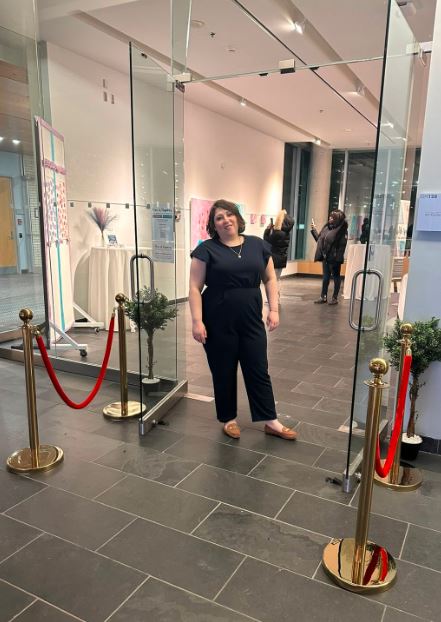
Rina Kazavchinski at the end of a successful and memorable first solo art show. Photo credit: Melanie Allen
She said the first painting she did after many years was an interpretation of a painting her friend always wanted and liked. Kazavchinski recreated it to something similar in tone and feel that she was really proud of.
“I just kept going and trying new things and then I started with a few first sales through my internal network and then that’s how it started to grow and then I applied to one show and then applied to another show and other opportunities,” Kazavchinski said.
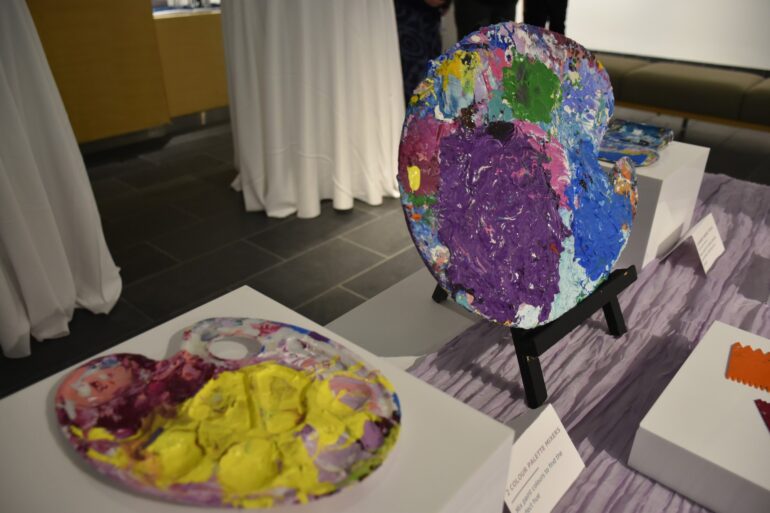
Paint palettes in the middle table at Rina Kazavchinski's first solo art show. Photo credit: Julia Vellucci
“It’s a long, gruelling process,” she said. “It’s like you have to really love it because it doesn’t pay the bills right away or even now, I can’t survive off of it.
“I still have to have other sources of income,” Kazavchinski said.
She said without her partner, Melanie Allen, she would not have been able to do half the stuff she has done as Allen has been a huge part of her support system in both her personal life and career.
“I’ve been with her for quite a few shows, late set-ups or early morning set-ups, various things which I’m really happy to do as it’s nice to see that she’s gotten this far and I know she’s only going to keep going,” said Allen, who studied acting in Vancouver.
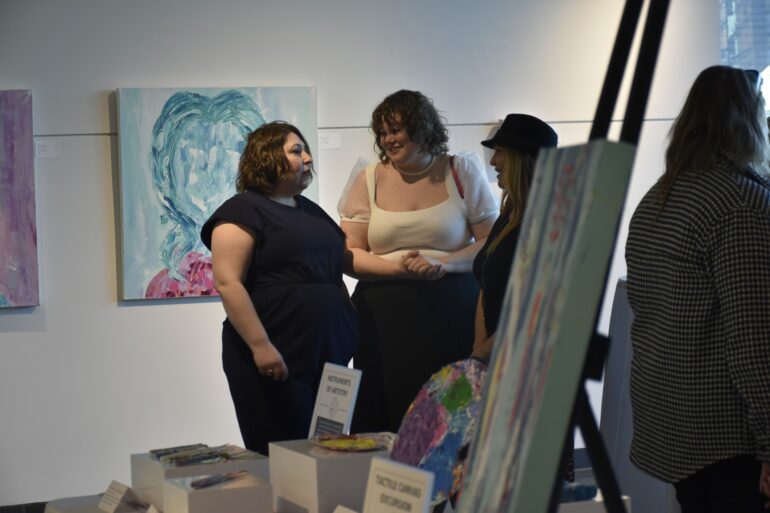
From left to right: Rina Kazavchinski, Melanie Allen and Aida Memisevic. Photo credit: Julia Vellucci
“That’s the thing that excites me the most about her that she’s very tenacious, she’s very determined. Her creativity is pretty boundless, so I know she’s going to go far,” she said.
“I’m here over in Toronto now so I’m looking to just get things started, build off my community and get some opportunities coming up,” Allen said. “But yeah, I’m an artist as well in that sense.”
Two Guelph-Humber students, Jesse Doyle and Marek Lubelski, also demonstrated that art comes in many forms during this event through their virtual reality (VR) booth in the same space as the Kazavchinski show.
“The VR shows the CN tower and things that she [Rina] talks about, Queen Street, Church Street, all those things. We put that together through Unity (software),” Doyle said
“Unity is technical programming but I would say this is also art,” Lubelski said.
“We took direct inspiration from this [her art] to be used,” Doyle said.
“This show is just about finding acceptance in society for people to be able to kind of be who they want to be, express themselves in any way, shape or form,” Kazavchinski said.

